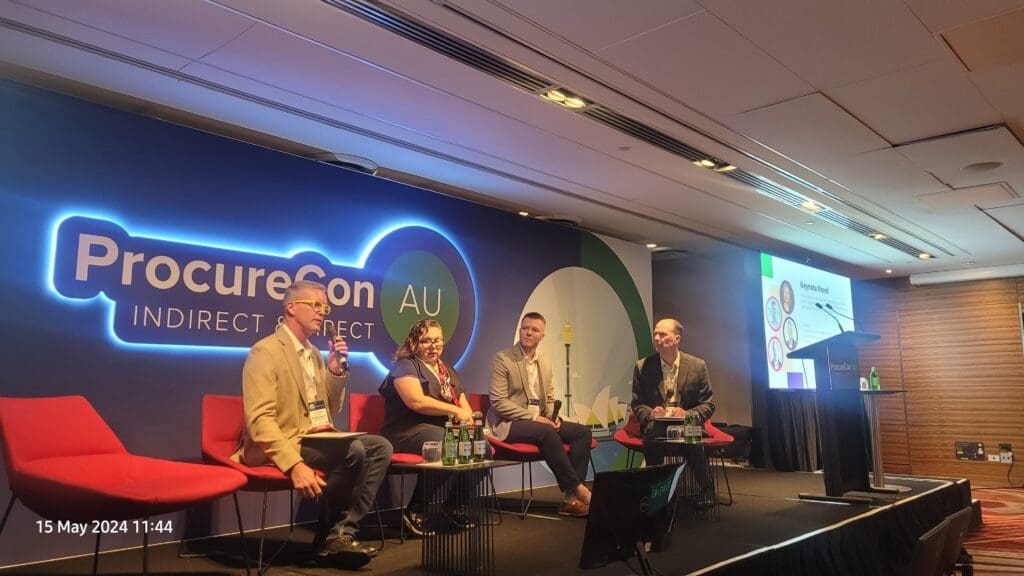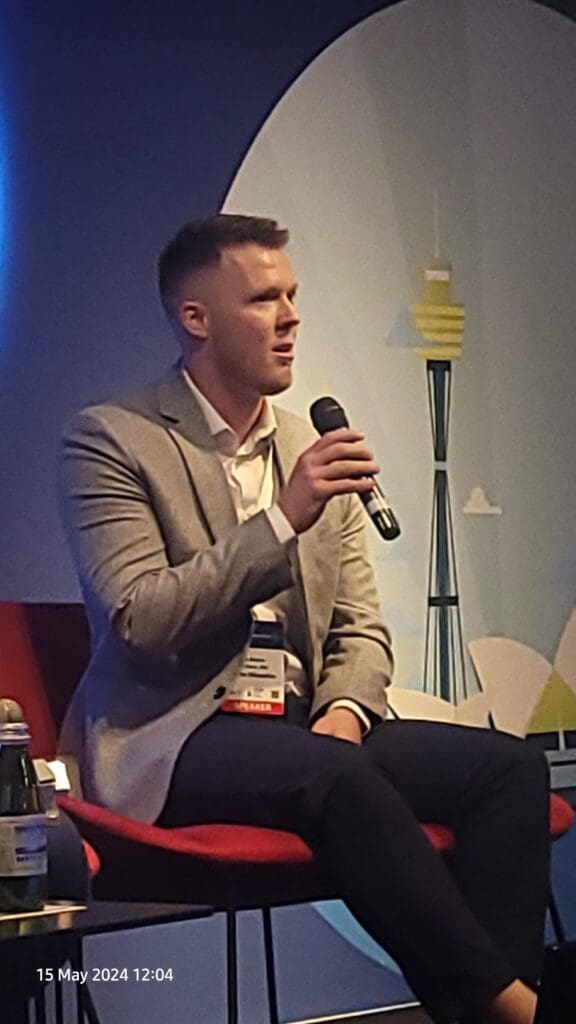The recent ProcureCon Australia event, held at the Sydney Hilton on May 14-15, brought together industry leaders to discuss the relevant topic of ESG (Environmental, Social, and Governance) and the way forward for organizations to adopt a robust, transparent, and standardized approach to effective supplier management. Among the notable speakers was Jake Bristow, Sales Director APAC at Achilles, who shared valuable insights on effective supplier management and robust due diligence mechanisms under the “Raising the bar with sustainability” keynote panel.
The Panel
The “Raising the bar with sustainability” panel featured a diverse group of experts:
- Jake Bristow: Sales Director APAC at Achilles, specializing in third-party risk management and sustainable procurement.
- Charleene Mundine: Founder, Black woman of Western Sydney and Member of the Victorian Government Purchasing.
- Carsten Pringle: Executive Manager, Principal Engagement, Australian Catholic Anti-Slavery Network, overseeing a large risk management program with a procurement spend of over $9 billion.
- Moderator: Graham Crawshaw – Director CASME

Key Discussion Points
Achieving ESG Goals and Senior Leadership Support
The panel began with a broad question on what organizations aim to achieve under the ESG banner and the importance of senior executive support. Jake Bristow emphasized that ESG is about remaining viable and continuing to deliver value for any organization. He stressed the need to quantify ESG intangibles to gain senior leadership’s immediate buy-in. Jake noted that while ESG goals such as net-zero targets are long-term, senior executives need to see the immediate benefits to support these initiatives fully.
Modern Slavery and Procurement
A significant part of the discussion revolved around addressing modern slavery within supply chains. Jake highlighted the importance of conducting materiality assessments to identify prominent risks and deploying a risk-based approach. With numerous suppliers, it’s crucial to focus resources where they can have the most significant impact, leveraging technology and digitization tools to streamline assessments.
Jake also pointed out that encouraging suppliers to be transparent about their challenges is essential. He mentioned an example of a solar panel manufacturer acknowledging an ethical employment breach, suggesting that learning from safety culture practices—where mistakes are shared and addressed collaboratively—could be beneficial in tackling social impacts.
Challenges and Solutions in Aligning Supplier Practices
Aligning supplier sustainability practices with organizational ESG goals presents several challenges. Jake and the panel discussed the need for clear definitions and effective communication of ESG expectations to suppliers. Education is vital in bringing suppliers, especially those in developing regions, on board with ESG initiatives.
Jake emphasized that most suppliers are eager to engage with ESG but need proper support and governance mechanisms. Understanding and aligning each supplier’s ESG goals with those of the organization is not just a challenge, but a practical step to avoid conflicts and ensure mutual benefits.

Conclusion
Jake Bristow’s insights during the ProcureCon Australia panel underscore the importance of senior leadership support, transparent communication, and a risk-based approach in achieving ESG goals. Leveraging the expertise of a supply chain sustainability solution provider like Achilles can significantly enhance a company’s risk mitigation and management strategies, ensuring long-term viability and value delivery to all stakeholders.
Partnering for a Sustainable Future with MyAchilles:
Organizations looking to improve their ESG performance can benefit from the expertise of third-party risk management providers. Achilles, with its extensive experience in sustainable procurement, offers tools and solutions that help companies navigate the complexities of ESG, streamline risk assessments, and foster stronger, more transparent supplier relationships. By prioritizing ESG, businesses mitigate risks and position themselves as leaders in sustainability and ethical practices.


